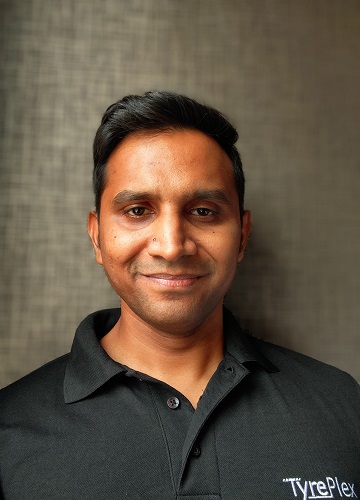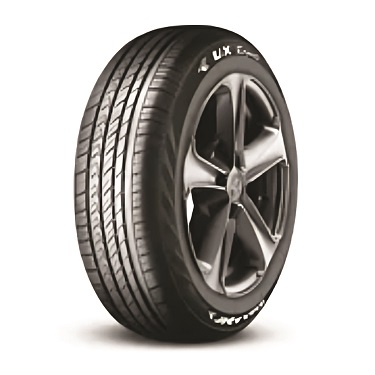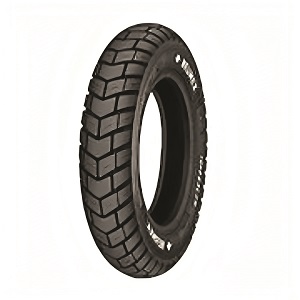Ordering Tyres Online With Doorstep Delivery
- By Gaurav Nandi
- March 05, 2025

The rise of e-commerce has changed the way how consumers access goods including tyres in India. With 196.3 million units sold in 2023 alone, the tyre industry is booming. Tyreplex, a B2B e-commerce platform, is harnessing technology to simplify tyre distribution, empower dealers and overcome logistical barriers, aiming to reshape the sector.
The interconnected world has practically reshaped our approach to acquiring goods online. From flowers and medicine to industrial equipment, modern consumers can easily acquire goods from the farthest corners of the world by just sitting within the four walls of a home or office.
The Indian tyre landscape is also not unknown to such ease of accessibility. According to an estimate by IMARC Group, 196.3 million units of tyres were sold in 2023 and the numbers are rising. And within such a booming market, Tyreplex is leveraging the power of modern-day technology to not only create virtual marketplace but also break the barriers of logistics.
 Speaking exclusively to Tyre Trends¸ Chief Executive Officer Puneet Bhaskar said, “The Indian tyre industry is evolving. We are very good at manufacturing and creating products suitable for Indian conditions. But when it comes to distribution, especially at the dealer level, a lot still needs to be done. Around 90 percent of tyre retailers are independent and fall within the unorganised sector. These retailers need to be upgraded and digitised to prepare for the next generation of consumers, who are more digital-savvy and well-informed about products. This is where significant work is needed and it’s something we plan to address.”
Speaking exclusively to Tyre Trends¸ Chief Executive Officer Puneet Bhaskar said, “The Indian tyre industry is evolving. We are very good at manufacturing and creating products suitable for Indian conditions. But when it comes to distribution, especially at the dealer level, a lot still needs to be done. Around 90 percent of tyre retailers are independent and fall within the unorganised sector. These retailers need to be upgraded and digitised to prepare for the next generation of consumers, who are more digital-savvy and well-informed about products. This is where significant work is needed and it’s something we plan to address.”
He added, “TyrePlex, in essence, is a B2B e-commerce company exclusively for tyre dealers. We focus on helping them enhance margins and sales by leveraging technology. Our platform enables dealers to procure more efficiently, manage stores better and handle customer relationships effectively.”
The New Delhi-based company was established in March 2020 by Bhaskar, Chief Product Officer Nikhil Kalra, Chief Technology Officer Jiveshwar Sharma and Chief Operating Officer Rupendra Pratap Singh. During its first six to twelve months, the focus was on laying the foundation by developing its product and technology. As markets began re-opening in 2021, the company rolled out its offering in Delhi NCR. Soon, the platform had around 6,000–7,000 dealers, with 1,200–1,500 actively utilising its services to some extent.
Since early 2022, the company reported being on a growth trajectory. Operating as a hyperlocal business, it expanded in Bengaluru, where it experienced rapid growth, scaling its topline and revenues by nearly 30 times between 2022 and the last financial year.
The executive also indicated that the company had already surpassed the previous year’s figures in the current financial year. Despite operating in only two cities, it projected revenue growth of 50–60 percent for the current fiscal.
TyrePlex does not have a dedicated app for consumers, relying instead on its website and mobile site due to the infinite purchase model. For dealers, however, there is an app available and both registration and usage are entirely free. All tools provided to dealers are free of charge, a policy that extends to consumers as well. Currently, the platform has over 20,000 registered dealers.
ORDERING ONLINE
TyrePlex was initially launched with a B2C approach, drawing on the team’s extensive experience in consumer-facing businesses. However, it became evident that the low purchase frequency and limited repeat business in the tyre market presented challenges for a purely B2C model. To better understand the dynamics of the market, the team even operated a tyre store for a few months. This hands-on experience provided valuable insights into the pain points faced by both dealers and customers. It ultimately highlighted the greater potential of a B2B model as it became clear that dealers encountered significant challenges that the company could effectively address.
“While we still maintain a B2C presence to help our dealers attract customers, our primary focus is on the B2B segment. We empower them by offering them a comprehensive platform to procure tyres easily. Dealers can access all major brands and categories, covering cars, bikes, scooters, trucks, buses and tractors on a single platform. Our unique value proposition lies in our efficiency. We fulfil 90 percent of orders on the same day with 50-60 percent delivered within 2-3 hours. Moreover, our model is entirely asset-light. We don’t own inventory or warehouses. Instead, we manage procurement, delivery and payment collection, ensuring a seamless and efficient experience for dealers,” said Bhaskar.

The company aggregates supply and demand. When an order is placed, the demand is sent to a network of pre-tagged suppliers integrated into the system. This process is entirely driven by technology and happens within seconds. Once the demand is shared with the suppliers, the technology platform evaluates key factors such as price, margins, delivery costs and logistics costs to determine the most suitable supplier to fulfil the order. The system uses algorithms to decide the optimal procurement source ensuring the decision aligns with margin goals and delivery timelines.
In addition to the technology driving the procurement process, TyrePlex has built robust back-end systems incorporating machine learning and artificial intelligence to enhance operational efficiency. These technologies continuously improve as more data is gathered, allowing the company to refine its decision-making processes over time.
The company sells around 15,000–16,000 tyres a month and has a modest workforce of 50 people.
DRIVING WITH DATA
Tyreplex’s data-driven approach is helping to reshape the tyre industry in India by providing deep insights into market trends and customer behaviour, which directly impacts distribution strategy. “We collect and triangulate data from various sources including our website, where we monitor customer behaviour such as the areas from which customers are coming, what kind of tyres they’re buying and the preferred brands. This real-time, organic consumer data gives us valuable insights into regional demand, brand preferences and tyre sizes in different parts of India,” averred the executive.
 “Additionally, we gather B2B data by tracking tyre sales including pricing and sales patterns. A third layer of data comes from the invoices generated by dealers through our platform, providing us with insights into their actual sales transactions. These insights with macro data help predict demand and optimise our distribution strategies. For instance, we shared these insights with Michelin during their visit to India, and they were so impressed that they partnered with us for B2B distribution in Delhi NCR,” he added.
“Additionally, we gather B2B data by tracking tyre sales including pricing and sales patterns. A third layer of data comes from the invoices generated by dealers through our platform, providing us with insights into their actual sales transactions. These insights with macro data help predict demand and optimise our distribution strategies. For instance, we shared these insights with Michelin during their visit to India, and they were so impressed that they partnered with us for B2B distribution in Delhi NCR,” he added.
TyrePlex is exploring opportunities to expand its product offering into other categories. A key area of focus is tyre recycling, particularly in light of the government’s mandate for 100 percent extended producer responsibility in the sector. The reverse supply chain for car and bike tyres remains fragmented wherein the company aims to leverage its existing supply chain to streamline and improve this process.
The company is also exploring opportunities in other categories like accessories, batteries and garage-related products. “Around 15-20 percent of our dealers already sell accessories or batteries and many of them also operate their own garages. While expanding into these categories is projected to be a few years down the line, our immediate priorities are geographical expansion, entering the tyre recycling market and eventually diversifying into additional product categories,” revealed Bhaskar.
UPCOMING LAUNCHES
The company is continually enhancing its technology stack with a particular emphasis on artificial intelligence (AI) and machine learning (ML). On the dealer side, the company is introducing computer vision to simplify inventory management. Soon, dealers will be able to scan or photograph their invoices, removing the need for manual entry into the system. Additionally, TyrePlex is developing customer relationship management (CRM) tools for dealers to help them provide targeted services such as alignment or balancing, based on customer history.
 On the consumer side, TyrePlex is working on products that leverage AI and ML to enhance the customer experience. One such product in development will allow consumers to photograph a tyre to determine how much tread life remains, helping them make informed decisions about when to replace their tyres. These consumer-facing features are expected to be launched within the current financial year.
On the consumer side, TyrePlex is working on products that leverage AI and ML to enhance the customer experience. One such product in development will allow consumers to photograph a tyre to determine how much tread life remains, helping them make informed decisions about when to replace their tyres. These consumer-facing features are expected to be launched within the current financial year.
Moreover, to address the significant knowledge gap within consumers, TyrePlex is focusing on educating and empowering consumers by expanding its content library on the website and introduce more educational tools.
EXPANDING FOOTPRINT
Alluding to the plans to expand footprint, the executive noted, “We are planning to expand into 25 of India’s top cities and the goal is to be present in at least four to five additional cities by the end of FY26. The cities we are targeting for expansion include Hyderabad, Chennai, Ahmedabad and Mumbai. After that, we plan to extend our reach to other cities based on our market analysis.”
“Our strategy is to focus on cities with high vehicle density and a strong concentration of digital-native dealers as these cities offer a conducive environment for our business. Once we are present in these top cities, we will use them as central hubs to fulfil orders for surrounding cities within a 50-100 km radius. This will allow us to streamline our supply chain and make deliveries more efficient,” he added.
He explained that to overcome the unique challenges of each market, the company has developed a playbook based on experience. Acknowledging that the company will face challenges such as regional preferences, local competition and logistical nuances, he noted that the solutions will be based on data accumulated through website and other sources.
On the industry side, he noted the need for improvement of distribution channels and creation of a more accessible supply chain. Building a strong ecosystem that connects dealers, brands and other stakeholders is crucial for fostering growth and ensuring greater efficiency in the tyre market. Looking ahead, the company plans to continue strengthening its ecosystem with dealers, brands and stakeholders. The goal is to position the company for an IPO on the main board within the next five years, setting the stage for long-term growth and continued market leadership.
Discount Tire Earns Spot On Glassdoor's Best Places To Work 2026 List
- By TT News
- February 04, 2026

Discount Tire has earned a prominent position on Glassdoor's Best Places To Work 2026 list, ranking 14th in Consumer Services and within the top 100 US employers. This distinction is awarded to organisations with over 1,000 employee reviews on Glassdoor and a minimum rating of 3.5. For the Scottsdale-based retailer, with more than 1,250 locations nationally, the honour underscores a long-standing commitment to its workforce.
The company cultivates a people-first culture for its over 30,000 employees by providing substantial career growth, thorough training, leadership development and competitive benefits. This philosophy, centred on serving others and empowering personal goals, previously earned Discount Tire top Glassdoor rankings from 2018 through 2021. The latest recognition reaffirms its status as an employer dedicated to fostering a supportive and progressive workplace.
Dean Muglia, Chief Executive Officer, said, "We treat our people like family. We're honoured to be recognised by both current and former employees and Glassdoor as a best place to work. We strive every day to deliver the most inviting, easy and safe experience possible for our people and our customers."
Michael Zuieback, Executive Chairman, said, "Through six and a half decades of growth, our primary commitments have stayed true: We want to take care of people and help make more dreams come true.”
Radar Tyres Secures Strategic Multi-Year Partnership With Cricket South Africa
- By TT News
- February 04, 2026

Radar Tyres has entered a significant, multi-year global partnership with Cricket South Africa, a strategic move to build its brand within a sport enjoyed by a worldwide audience. This alliance grants the company headline sponsorship for the Proteas Men’s and Women’s T20 International sides, alongside associate partnership status for their ODI and Test matches. Radar will also be the headline partner for South Africa’s Under-19 national teams.
The collaboration provides substantial visibility, featuring exclusive logo placement on both match and training kits, with the new T20I apparel already unveiled. For Radar, this investment is a key step in leveraging high-profile platforms to enhance global brand recognition, all while maintaining its commitment to providing high-quality, value-driven tyre products.
G S Sareen, President and CEO, Omni United, said, "Becoming the Global Partner of the Proteas marks a significant milestone in Radar Tyres' global brand journey and reflects our belief in sport as a powerful platform to build brand equity, strengthen dealer support, enhance trust and credibility and connect with households worldwide. Through this partnership, we are able to engage with cricket fans both locally and globally while reinforcing Radar Tyres' as a reliable, performance-driven brand committed to delivering premium-performance at an accessible price point."
Pholetsi Moseki, Chief Executive Officer, CSA, said, "CSA is extremely proud to partner with Radar Tyres, an organisation that shares our values and commitment to excellence. This partnership is a significant milestone, securing support not only for our senior teams but for our junior teams as well. This partnership reflects our deliberate approach to working with like-minded organisations, guided by a long-term vision of developing the game, supporting our players and delivering memorable experiences for fans. Radar Tyres' support also reinforces CSA's commitment to excellence and inclusion, strengthening our ability to drive high performance across all levels."
AZuR Shortlisted For German Award For Sustainability Projects 2026
- By TT News
- February 03, 2026

For the second consecutive year, the Alliance for the Future of Tyres (AZuR) has been shortlisted for the German Award for Sustainability Projects, following its 2025 win. This renewed nomination underscores the jury’s recognition of AZuR as a pioneering force in sustainability, particularly for its dedicated efforts to advance tyre retreading as a core component of a circular economy. The 2026 award ceremony will be held under the patronage of Brigitte Zypries on 17 September in Berlin.
AZuR’s multifaceted initiative extends well beyond theoretical advocacy. Its work gained significant international attention with the Retreading Summit, held in September 2025 at KRONE Trailer in Werlte. This event convened experts from industry, politics, academia and media for two days of intensive dialogue on the potential, challenges and necessary policy frameworks for tyre modernisation, leading to the launch of concrete action plans. Furthermore, the alliance drives progress through strategic communications and direct support for flagship projects, such as the new passenger car tyre retreading facility established by Rigdon in Pfaffenhofen.
Central to AZuR’s mission is transforming public perception by demonstrating that worn tyres are valuable resources, not waste. Through ongoing awareness campaigns, it highlights the substantial ecological and economic benefits of retreaded tyres, which can be refurbished multiple times to conserve raw materials, reduce climate impact and offer cost-effective solutions. The German Award for Sustainability Projects, judged by a panel chaired by Prof Dr Claudia Kemfert of DIW Berlin, evaluates entries based on their innovation, impact and relevance to a sustainable future. AZuR’s repeated shortlisting affirms that its model for a tyre circular economy is a replicable and exemplary system with groundbreaking potential.
- Manish Maharaj
- Balkrishna Industries Ltd
- BKT Tyres
- Apollo Tyres Ltd
- Tyre Industry
- Business Finance Leadership
Manish Maharaj Joins BKT Tyres as GM & Head of Business Finance
- By Sharad Matade
- February 02, 2026

Seasoned tyre industry executive Manish Maharaj has embarked on a new professional chapter, joining Balkrishna Industries Ltd (BKT Tires) in a senior leadership capacity after a distinguished 11-year tenure with Apollo Tyres Ltd.
In his new role at BKT Tires, Maharaj has been appointed General Manager and Head of Business Finance, where he will focus on enhancing financial strategy, driving performance-driven growth, and building scalable systems to support BKT’s global expansion ambitions.
“I am thrilled to begin a new chapter with BKT Tires,” said Maharaj.
Maharaj’s career at Apollo spanned multiple strategic roles in one of the world’s leading tyre manufacturers, most recently serving as Regional Chief Financial Officer for South East Asia, the Middle East and Africa, and later as Business Head for South East Asia. In these capacities, he led multi-market commercial and financial operations, driving robust business performance across diverse cultural and economic environments.
At Apollo, Maharaj was responsible for charting growth strategies in fast-evolving markets, strengthening distributor partnerships, and reinforcing brand positioning across key ASEAN economies. His leadership coincided with initiatives to expand premium brand presence in Thailand, Malaysia, Philippines & South Korea and foster deeper retail engagement across the ASEAN region.







Comments (0)
ADD COMMENT